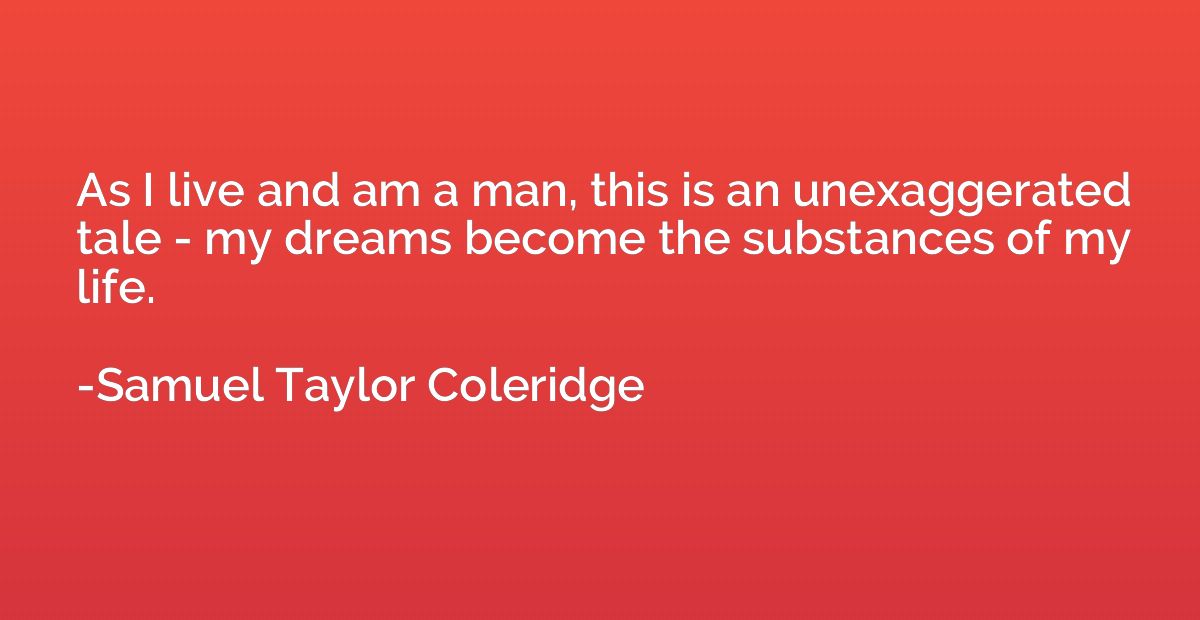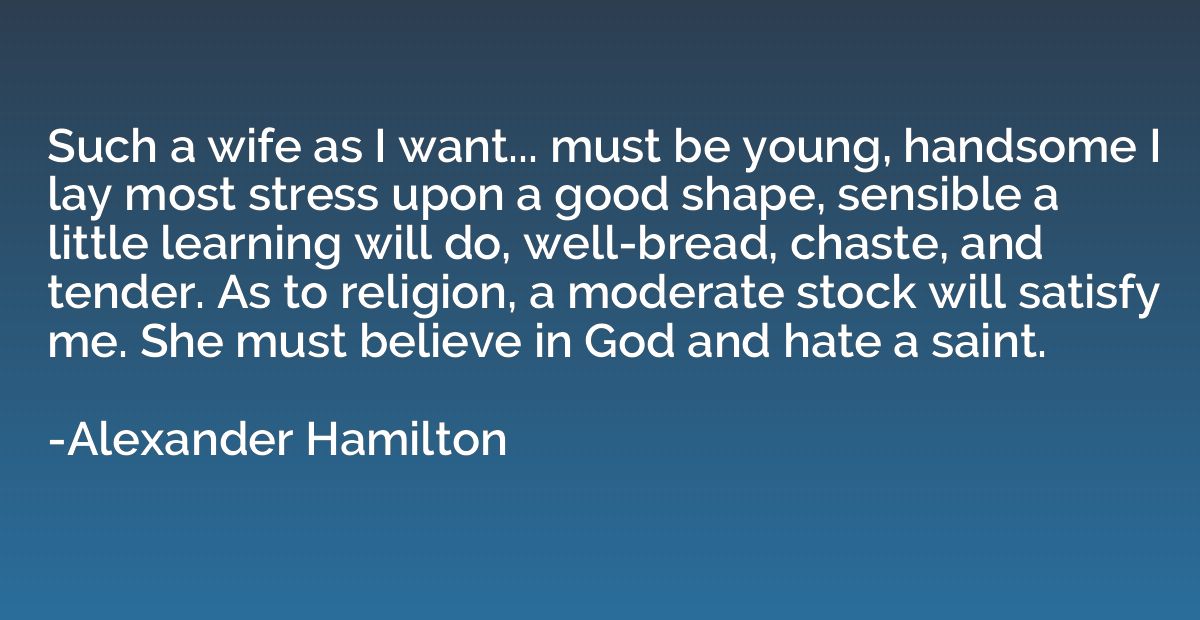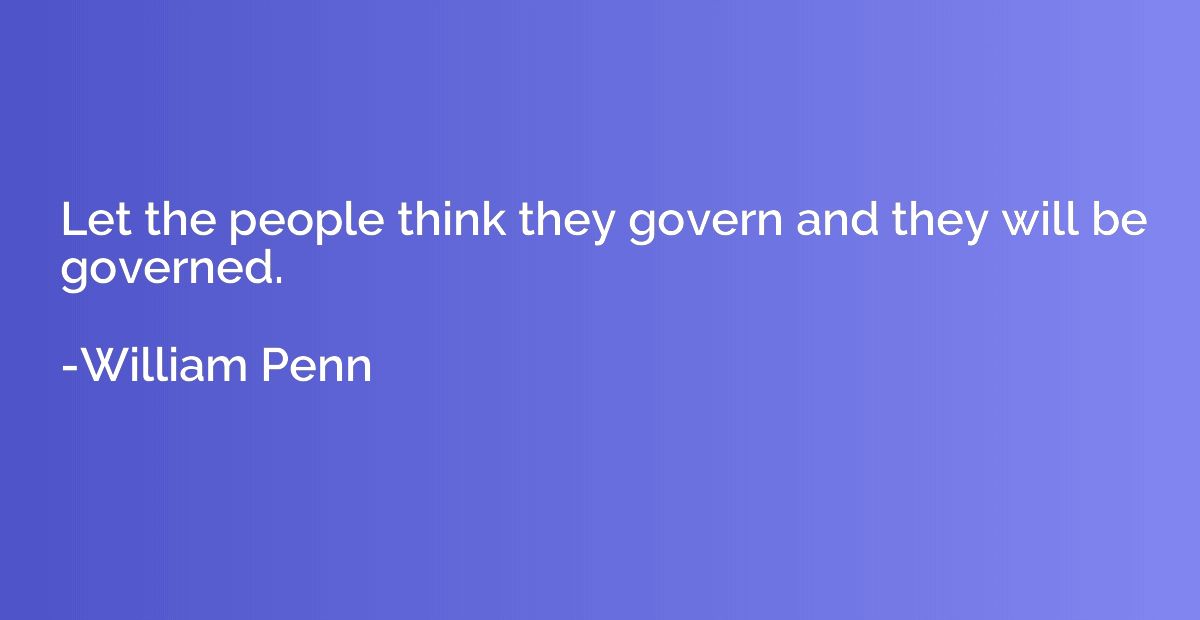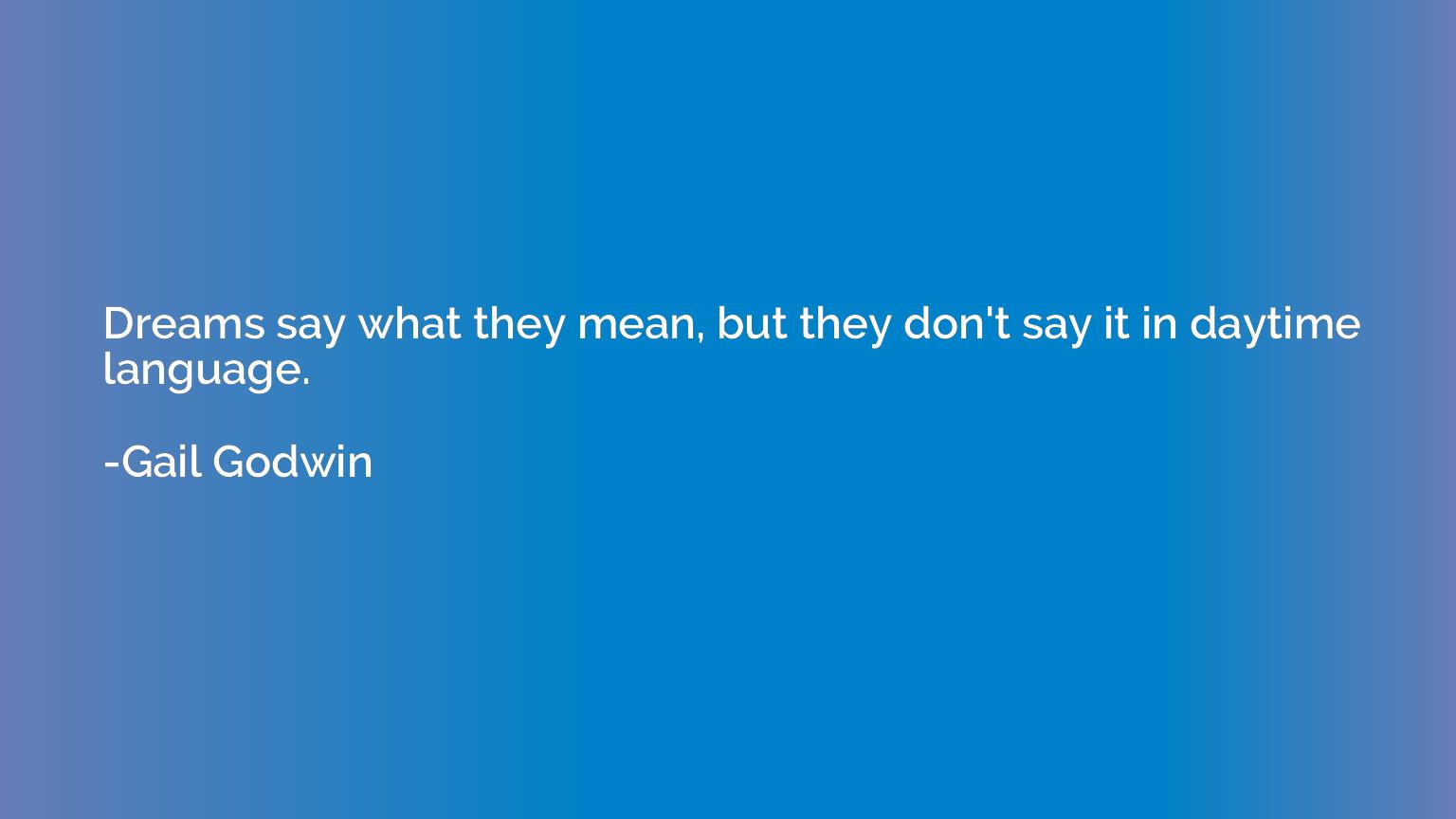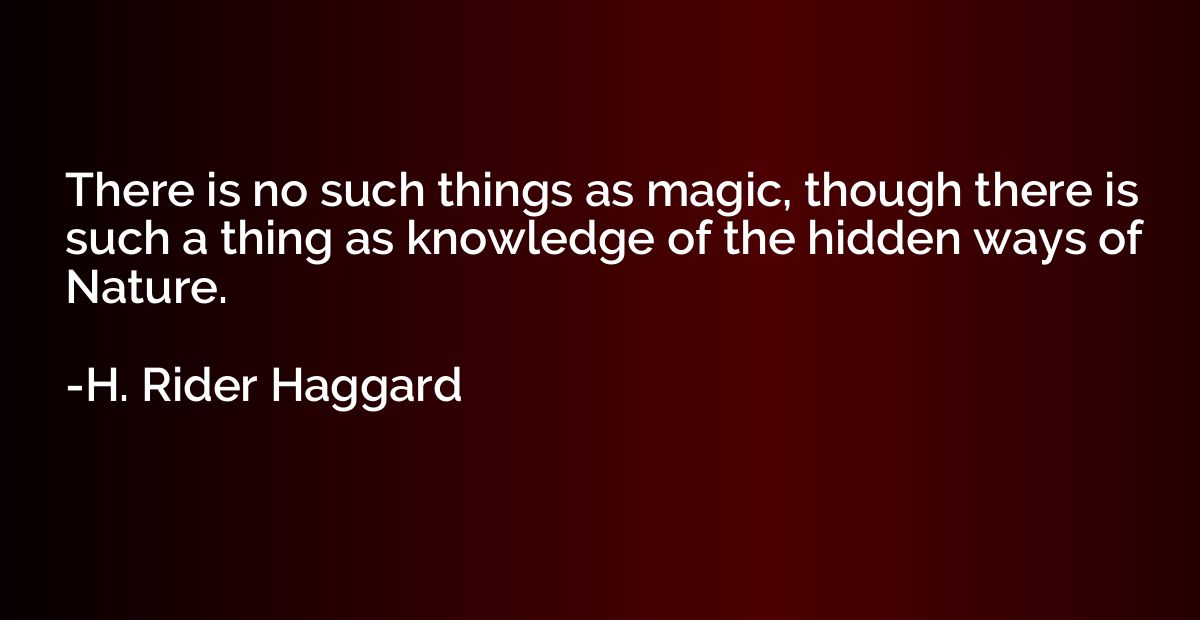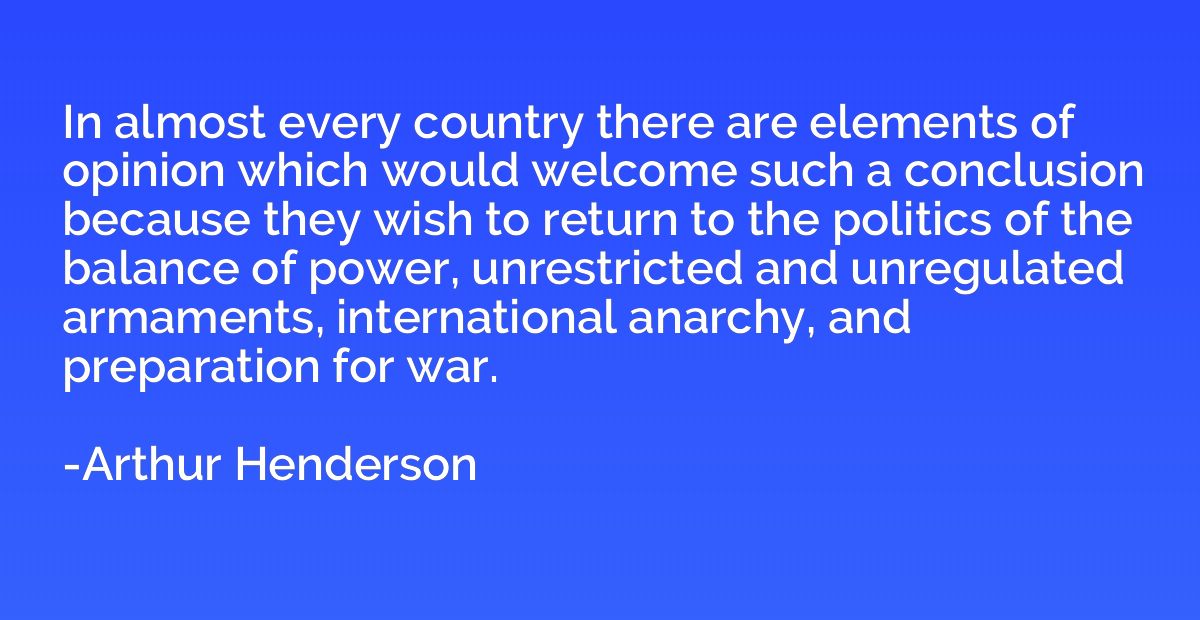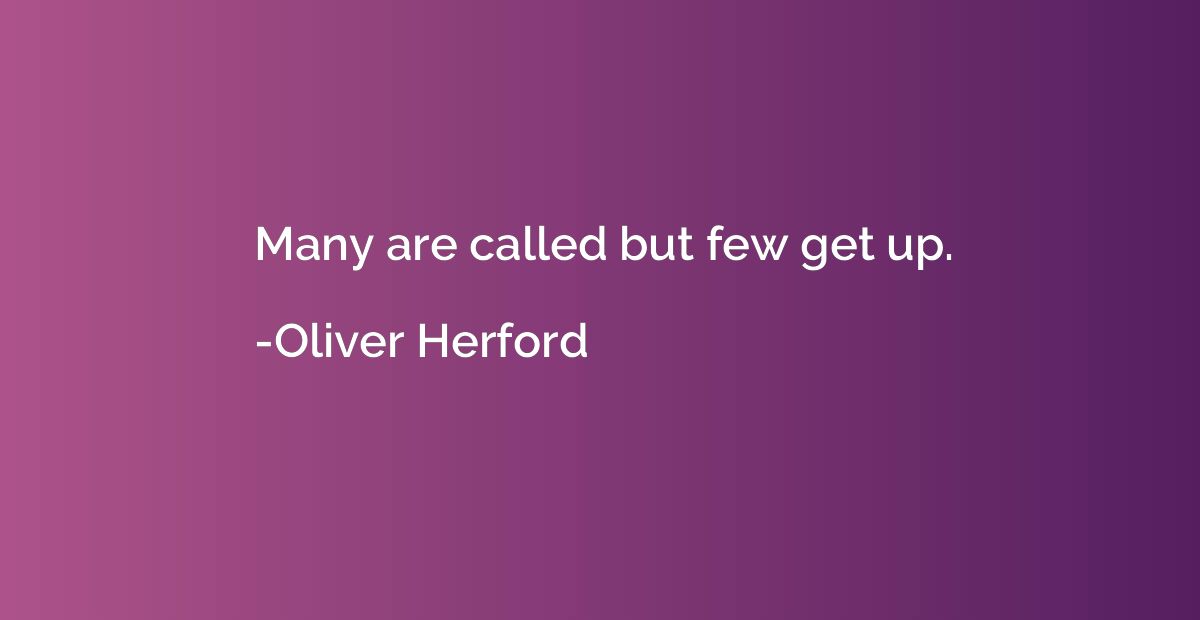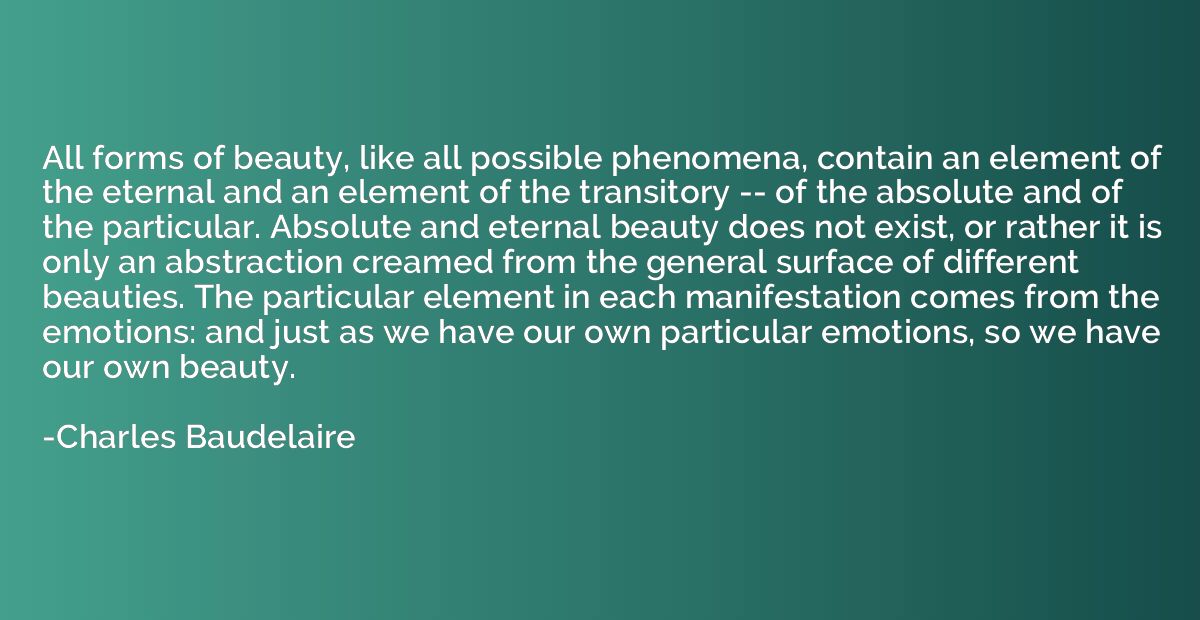Quote by Peter Drucker
Everything requires time. It is the only truly universal condition. All work takes place in time and uses up time. Yet most people take for granted this unique, irreplaceable, and necessary resource. Nothing else, perhaps, distinguishes effective executives as much as their tender loving care of time.
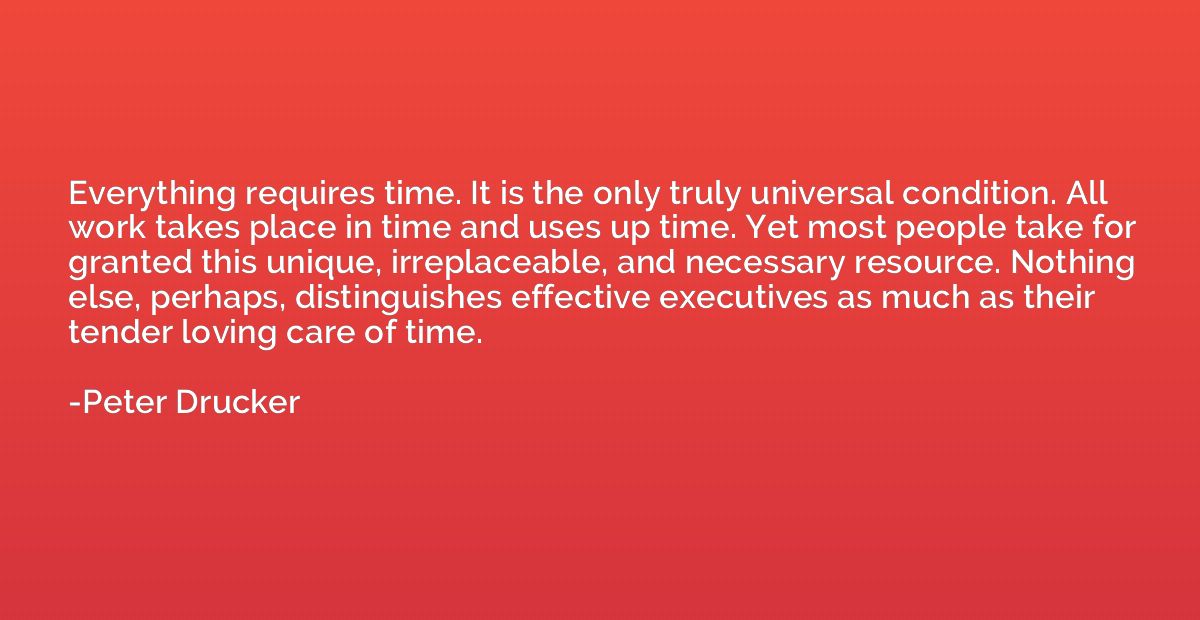
Summary
This quote emphasizes the importance of time in all aspects of life. Time is described as the only universal condition that affects everything and is used up by all work. Despite its significance, many people often overlook or underestimate the value of time. The quote suggests that effective executives stand out because they understand and prioritize time management, recognizing it as a valuable and limited resource. By treating time with care and utilizing it efficiently, these individuals are able to achieve success in their endeavors.



